Discover effective strategies for overcoming addiction and reclaiming your life. Explore comprehensive treatment options at Costa Rica Treatment Center.
Dual diagnosis treatment – Mental health and substance use conditions often go hand in hand. When an individual is diagnosed with both a mental health disorder and a substance use disorder, it is referred to as a dual diagnosis or co-occurring disorders. It is estimated that nearly half of all individuals who seek addiction treatment have a co-occurring mental health disorder.
Dual diagnosis can be challenging to diagnose and treat, as the symptoms of mental health conditions and substance use conditions can overlap and complicate the picture. However, it is essential to address both conditions simultaneously to achieve lasting recovery.
Mental health conditions commonly associated with substance use disorders include depression, anxiety, bipolar disorder, and post-traumatic stress disorder (PTSD). The reasons for the high rates of co-occurring conditions are not fully understood, but researchers have identified several possible factors.
One theory is that individuals with mental health ailments may use substances to self-medicate and alleviate their symptoms. For example, someone with depression may turn to alcohol to numb their feelings of sadness, while someone with anxiety may use marijuana to calm their nerves. However, while substances may provide temporary relief, they can exacerbate the symptoms of mental health conditions over time.
Another theory is that substance use can trigger mental health conditions. For example, long-term use of methamphetamine can lead to psychosis, while excessive alcohol use can cause depression and anxiety.

Treatment Options for Dual Diagnosis
Regardless of the reason for the co-occurring conditions, it is crucial to address both simultaneously to achieve lasting recovery. Treatment for dual diagnosis typically involves a combination of medication, therapy, and support groups.
Medications such as antidepressants, mood stabilizers, and antipsychotics may be prescribed to manage the symptoms of mental health conditions. Medications such as methadone or buprenorphine may be prescribed to help individuals with opioid addiction manage their cravings and withdrawal symptoms.
However, it’s important to note that medications alone are not enough to treat dual diagnosis. Therapies such as cognitive-behavioral therapy (CBT) and dialectical behavior therapy (DBT) are often used to treat both mental health and substance use disorders. These therapies help individuals identify and change negative thought patterns and behaviors, develop coping skills, and improve their overall quality of life.
CBT is a form of talk therapy that helps individuals identify and change negative thought patterns and behaviors. The therapy focuses on the present and helps individuals learn how to cope with negative thoughts and emotions in the moment. CBT has been shown to be effective in treating depression, anxiety, and PTSD.
DBT is a type of therapy that combines cognitive-behavioral techniques with mindfulness practices. DBT helps individuals regulate their emotions and cope with stress more effectively. This therapy has been shown to be effective in treating borderline personality disorder, which is a mental health disorder commonly associated with substance use disorders.
Support groups such as Alcoholics Anonymous (AA) and Narcotics Anonymous (NA) can also be beneficial for individuals with dual diagnoses. These groups provide a supportive community of individuals who are going through similar experiences and can offer guidance and encouragement.
In addition to traditional treatment methods, a holistic approach to dual diagnosis may also be beneficial. Holistic therapies such as yoga, meditation, nature immersion therapy, and acupuncture can help individuals manage stress, improve their overall well-being, and reduce their reliance on substances.
Yoga is a physical and mental practice that can help individuals reduce stress, improve flexibility, and increase overall well-being. Yoga has been shown to be effective in reducing symptoms of anxiety and depression.
Meditation is a practice that involves focusing on the present moment and quieting the mind. Meditation can help individuals reduce stress, improve their concentration, and manage their emotions. Meditation has been shown to be effective in reducing symptoms of anxiety, depression, and PTSD.
Nature immersion therapy typically involves three types of contact with nature: viewing nature, being in nature, and active engagement in nature-related activities. This could include meditating in forests, gardening, or long walks in nature. According to the National Institute of Health, a wealth of research has demonstrated the benefits of nature exposure on one’s physical, psychological, and physiological well-being. Nature immersion therapy stems from ecopsychology, a branch of psychology, focused on fostering an individual’s connection to the earth with the intention of improving the individual’s physical and mental health. Nature immersion therapy has been shown by the National Institute of Health to be useful in the treatment of mental illnesses such as anxiety and depression and in the treatment of substance use disorder.
Acupuncture is a traditional Chinese medicine practice that involves inserting thin needles into specific points on the body. Acupuncture can help individuals manage pain, reduce stress, and improve their overall well-being. Acupuncture has been shown to be effective in reducing symptoms of anxiety, depression, and substance withdrawal.
It is important to note that treatment for dual diagnosis is not a one-size-fits-all approach. Treatment plans should be individualized and tailored to each person’s unique needs and circumstances. For example, someone with a co-occurring mental health condition and a history of trauma may benefit from trauma-focused therapy, while someone with a co-occurring mental health condition and chronic pain may benefit from pain management techniques. Costa Rica Treatment Center has a specialized rehabilitation program for co-occurring disorders, to provide extensive individualized care based on the individual’s needs.
Factors Associated with Dual Diagnosis
Research has shed light on the prevalence and factors associated with dual diagnosis, helping to identify individuals who are more likely to suffer from this condition. Several studies have found that certain populations are at a higher risk of experiencing co-occurring mental health and substance use disorders.
One study published in the Journal of the American Medical Association (JAMA) found that individuals with mental health disorders are more likely to have a substance use disorder compared to those without mental health conditions. The study also revealed that individuals with substance use disorders are more likely to have a mental health disorder. This bidirectional relationship emphasizes the strong connection between mental health and substance use.
Moreover, research has shown that certain mental health conditions are particularly associated with a higher risk of substance use disorders. For example, individuals with depression have been found to have a higher likelihood of substance abuse compared to the general population. Similarly, individuals with anxiety disorders, bipolar disorder, and PTSD are also at an increased risk of developing co-occurring substance use disorders.
The link between trauma and substance use disorders is also well-documented. Research suggests that individuals who have experienced traumatic events, such as physical or sexual abuse, are more likely to develop both mental health conditions and substance use disorders. Trauma can significantly impact an individual’s emotional well-being, leading to the use of substances as a coping mechanism.
Additionally, specific substances have been found to be more closely associated with certain mental health disorders. For example, individuals with alcohol use disorder are more likely to experience depression, while individuals with stimulant use disorders, such as cocaine or methamphetamine, are at a higher risk of developing psychotic symptoms.
Understanding these risk factors and the interplay between mental health and substance use is crucial for effective identification and treatment of dual diagnosis. Comprehensive screening and assessment tools have been developed to help healthcare professionals identify individuals with co-occurring disorders. These assessments consider mental health symptoms and substance use patterns to provide a more accurate diagnosis.
It’s important to note that while research has provided valuable insights, the complexity of dual diagnosis necessitates individualized treatment approaches. Factors such as personal history, severity of symptoms, and level of functioning all play a role in determining the most appropriate treatment strategies for each individual.
By recognizing the increased vulnerability of certain populations and understanding the underlying risk factors, healthcare providers can offer more targeted interventions and improve outcomes for individuals with dual diagnosis. Additionally, ongoing research continues to explore the complex relationship between mental health and substance use disorders, further enhancing our understanding and treatment approaches for dual diagnosis.

Seeking Help
Dual diagnosis is a complex condition that necessitates a comprehensive and integrated approach to treatment. By addressing both the mental health condition and the substance use disorder simultaneously, individuals have the best chance of achieving lasting recovery and improving their overall well-being. This comprehensive approach often includes a combination of medication, therapy, support groups, and holistic therapies.
When facing a dual diagnosis, seeking professional help is crucial. Licensed addiction treatment centers that specialize in co-occurring disorders can provide the necessary support, guidance, and expertise to guide individuals on their path to recovery. Remember, recovery is possible, and no one has to face the challenges of dual diagnosis alone.
By taking the courageous step of reaching out for help, individuals can access a range of resources and evidence-based treatments that can make a significant difference in their lives. Individuals with a dual diagnosis can achieve improved mental health, sobriety, and a fulfilling life with the right support system, personalized treatment plan, and commitment. There is hope for a brighter future, and recovery from dual diagnosis is within reach for those who are willing to embark on this transformative journey.
Frequently Asked Questions
Why is it important to treat both the mental health condition and the substance use disorder in dual diagnosis?
Treating both the mental health condition and the substance use disorder simultaneously is crucial because these two conditions often influence and reinforce each other. Failing to address one component may lead to poor treatment outcomes and a higher risk of relapse.
What are the treatment options for dual diagnosis?
Treatment for dual diagnosis typically involves a comprehensive and integrated approach. It may include a combination of medication, therapy (such as cognitive-behavioral therapy or dialectical behavior therapy), support groups, and holistic therapies (such as yoga or meditation).
Can recovery from dual diagnosis be achieved?
Yes, recovery from dual diagnosis is possible. With proper diagnosis, appropriate treatment, ongoing support, and a commitment to personal growth, individuals can achieve lasting recovery and lead fulfilling lives.
Where can I find help for dual diagnosis?
It is recommended to seek help from licensed addiction treatment centers or mental health facilities that specialize in treating co-occurring disorders. These facilities have professionals experienced in dual diagnosis treatment and can provide the necessary support and guidance to individuals seeking recovery.
How can an addiction treatment center help with dual diagnosis?
An addiction treatment center specializing in dual diagnosis provides comprehensive and integrated treatment tailored to individuals with co-occurring disorders. These centers have professionals experienced in addressing the substance use disorder and mental health condition simultaneously, ensuring a holistic approach to treatment.
What should I look for in an addiction treatment center for dual diagnosis?
When selecting an addiction treatment center for dual diagnosis, it’s important to ensure they have expertise in treating co-occurring disorders. Look for licensed and accredited centers with professionals trained in dual diagnosis treatment, a variety of therapeutic modalities, and a supportive and compassionate environment.
What types of treatment programs are available for dual diagnosis at addiction treatment centers?
Addiction treatment centers offer various treatment programs for dual diagnosis, including residential programs, outpatient programs, intensive outpatient programs (IOP), and partial hospitalization programs (PHP). The appropriate program will depend on individual needs, severity of the conditions, and treatment goals.
How long does the treatment program for dual diagnosis typically last?
The duration of the treatment program for dual diagnosis can vary based on individual circumstances. Residential programs usually range from 30 to 90 days, while outpatient programs can last several months. Longer-term programs may be recommended for individuals with complex dual diagnosis cases.
How long does the treatment program for dual diagnosis typically last?
The duration of the treatment program for dual diagnosis can vary based on individual circumstances. Residential programs usually range from 30 to 90 days, while outpatient programs can last several months. Longer-term programs may be recommended for individuals with complex dual diagnosis cases.








